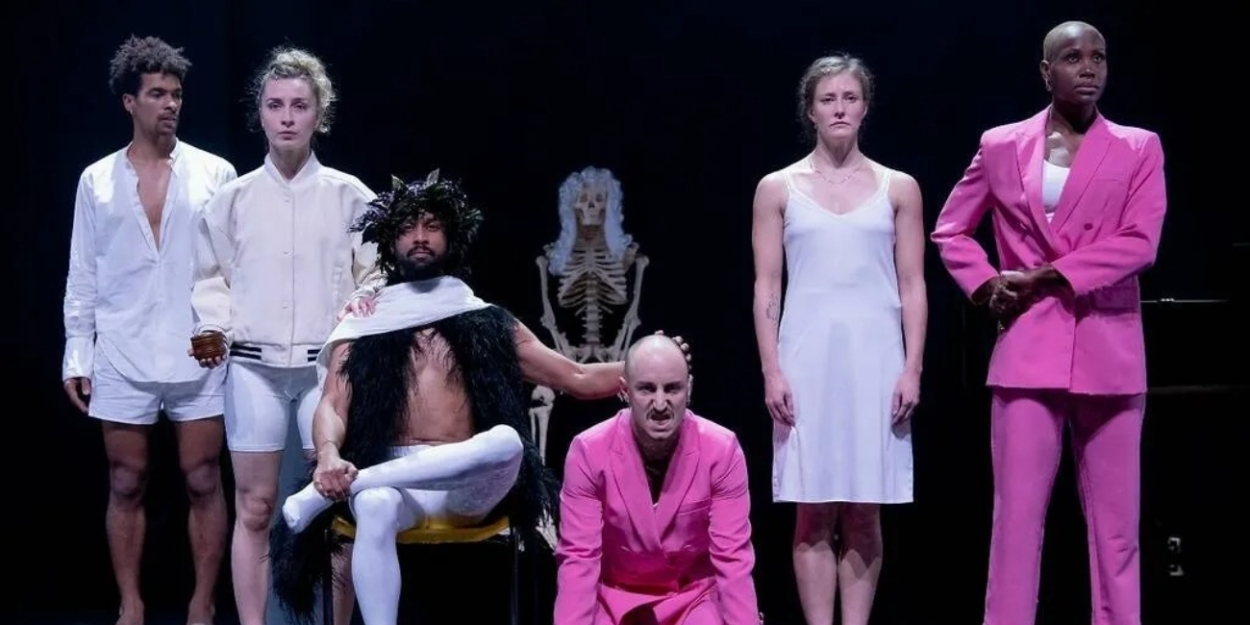Review: RUINATION, Royal Ballet and Opera
Ben Duke's revolutionary re-telling of Medea is the perfect seasonal treat.

 In a season where theatres are filled with the usual hoary horde - here a Christmas Carol, there a Nutcracker or Messiah - the Royal Ballet and Opera deserves praise and maybe even a standing ovation for bringing back its Yuletide hit from 2022.
In a season where theatres are filled with the usual hoary horde - here a Christmas Carol, there a Nutcracker or Messiah - the Royal Ballet and Opera deserves praise and maybe even a standing ovation for bringing back its Yuletide hit from 2022.
Ben Duke’s Ruination (a co-production between the Royal Ballet and his Lost Dog company) is perfect for this time of year, being a work about reflecting on the recent past and built around the notions of love, family and children. Then again, those expecting something cheery may also want to consider that the source material is Euripides’s Medea, a Greek tragedy that makes Titus Andronicus look like an episode of Bluey.
Each generation reimagines hell in their own image. New horrors push out old fears as the latest atrocities and bogeymen ripped from the headlines and Hollywood are given pride of place. Duke already has form when it comes to taking ancient classics and turning them upside down and inside out and his Medea takes the Underworld as the starting point. In his vision, there are no three-headed dogs, no tortured souls and definitely no demons with pointy sticks and wicked grins either. Instead, he paints it as an eerie mortuary overseen by Hades, a butch mortician (Jean Daniel Broussé) who casually swaps between a plastic dress, a dapper fuchsia suit and a cute tutu.
It is here that we first meet covered up on gurneys the recently-deceased Medea and her beau-to-be Jason (sans his Argonauts). Hades fusses over them but his first attentions are not to these corpses but to the audience: “don’t you want to go see Cinderella upstairs?” he asks, implicitly warning us not to expect the “joy, love and hope” those in the main house are currently watching. This is a handy oppurtunity for those looking for an evening without violent imagery to skedaddle but no-one does.
When Jason (Liam Francis) does wake up, he’s not happy. Not only is he dead but he wants justice for his children and punishment for his erstwhile wife (a fantastically moving performance from Hannah Shepherd). A trial is convened with Hades’ wife Persephone (Anna-Kay Gayle) defending Medea, Hades himself representing Jason and the proceedings overseen by a seated skeleton in a pompadour wig. What follows is a series of flashbacks woven between scenes in the present as Medea slowly comes to terms with her multiple losses and sets the record straight from her perspective.
Duke pulls off several brilliant tricks. The first is giving the central characters a modern spin without losing sight of the terrible deeds and the heartbreaking betrayals that underpin the tragedy. We still hear of how Medea’s brother is cut into pieces and thrown overboard as she and Jason flee but, once they have escaped, we see a pernicious domesticity set in: she becomes a pilates teacher supporting them both while her once-warrior husband turns his hand to acting. We also hear of how Hades and Persephone first met in less than romantic circumstances.
The choreography woven into the drama has phenomenal effect, especially when we see Shepherd lifted and moved around the stage to portray Medea's desperate and ultimately futile journey back across the river Styx. There’s meta-dance too with displays of breathtaking intimacy; in one memorable scene, Jason strips off completely in order for Medea to slowly rub him all over with a life-saving salve. After she ministers to him, he seduces her with a sexy wiggle of his hips, a physical motif we see later on when Jason abandons her for a younger woman.
Another masterstroke is having the entire Medea mythos upended and re-evaluated in a way which feels natural and requires zero knowledge of the original story. This show is as much about theatre as it is dance with broader themes around responsibilities and relationships held up to the light.
It is clear from Ruination that Duke is nothing if not an iconoclast. His re-telling of Eurypides’ classic tale not only switches the events around but also adds a fresh and compelling viewpoint, something that would have been welcome in the summer Netflix hit Kaos (which featured a more conventional view of Hades and Persephone) and another Euripides’ revival earlier this year. In 2025, there will be another chance to compare classical re-envisionings as Rami Malek takes on Oedipus while Duke’s version of John Milton's Paradise Lost returns after a decade. In terms of thought-provoking dramatic invention and visual imagination, my money’s on the latter.
Ruination continues at the Royal Ballet and Opera until 4 January.
Photo credit: Camilla Greenwell
Reader Reviews
Videos

